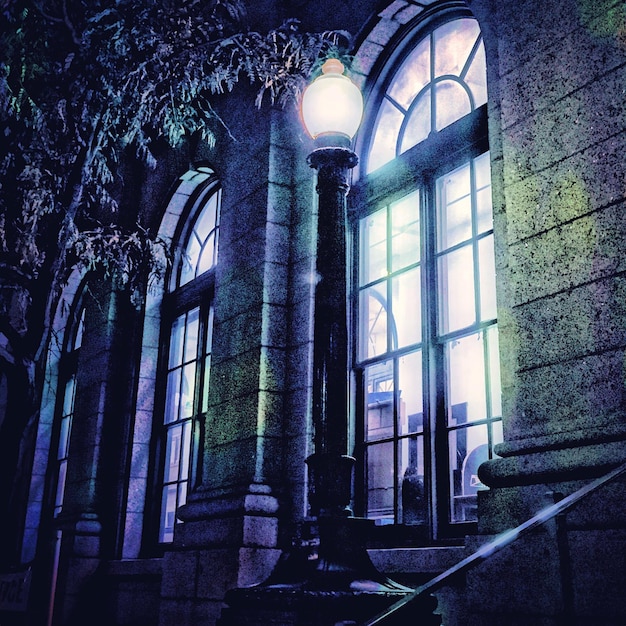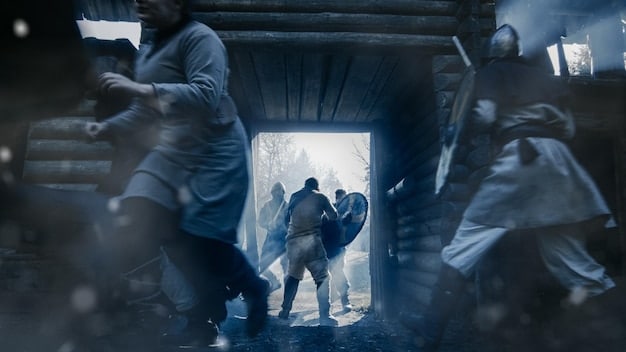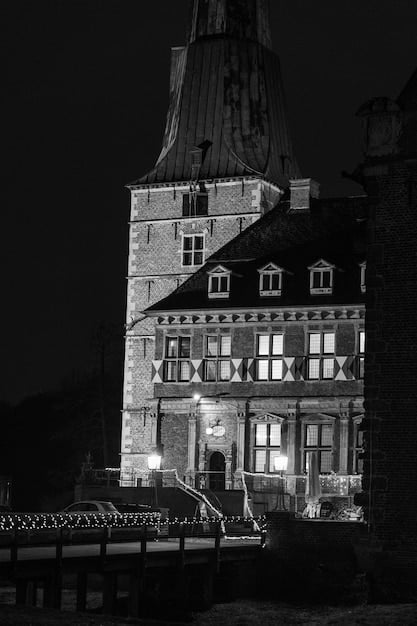Paranormal Tourism: Ethics and the Growing Trend in Haunted US Locations

Paranormal tourism is experiencing a surge in the US, raising questions about whether visiting haunted locations is ethical. This trend presents both opportunities for economic growth and challenges related to respecting historical sites and the potential disturbances of alleged paranormal activity.
The allure of the unknown and the thrill of the supernatural have fueled a fascinating trend in the United States: paranormal tourism. But as more people flock to purportedly haunted locations, a crucial question arises: Is Visiting Haunted Locations Ethical? A Look at the Growing Trend in the US? This article explores the ethics surrounding this growing industry.
From historic hotels and abandoned asylums to eerie cemeteries and battlefields, these sites attract visitors eager to experience a brush with the paranormal. Yet, with this increasing popularity comes a responsibility to consider the ethical implications of profiting from places associated with tragedy, death, and spiritual beliefs.
Paranormal Tourism: A Booming Industry in the US
Paranormal tourism, the practice of traveling to locations known for or believed to be haunted, is not a new phenomenon, but it has gained significant traction in recent years. Reality television shows, documentaries, and online communities dedicated to ghost hunting have all contributed to the increasing fascination with the supernatural.
But what exactly is fueling this surge in interest, and why are so many people willing to spend their time and money exploring the unknown?
The Rise of Ghost Hunting Expeditions
The accessibility of ghost hunting equipment and the proliferation of online resources have democratized the field of paranormal investigation. Anyone with a smartphone and a spirit box app can now participate in a ghost hunt, fueling the popularity of organized expeditions to haunted locations.
Many travelers seek out these experiences, not just for entertainment but for a sense of connection to something beyond the mundane. They are drawn to the stories and legends associated with these places, hoping to witness or experience firsthand evidence of the paranormal.
- Economic Impact: Paranormal tourism generates revenue for local businesses and boosts regional economies.
- Historical Preservation: Haunted locations can be preserved and maintained through tourism revenue.
- Educational Opportunities: Guided tours can provide insights into the history and folklore associated with haunted sites.
Ultimately, the rise of paranormal tourism can be attributed to a combination of factors, including increased media exposure, technological advancements, and a growing desire for unique and immersive travel experiences.

The Ethical Dilemma: Is Paranormal Tourism Ethical?
As the Paranormal Tourism: Is Visiting Haunted Locations Ethical? A Look at the Growing Trend in the US continues to expand, it is essential to examine the ethical implications of this practice. Are we respecting the history and the potential spiritual significance of these places, or are we simply exploiting them for entertainment and profit?
The answer is far from straightforward, and depends greatly on the beliefs, values, and motivations of those involved.
Respecting Historical Sites and Memorials
Many allegedly haunted locations are historical landmarks, burial grounds, or sites of past tragedies. Treating these places with respect and reverence is crucial, especially considering the potential for disrespectful behavior from thrill-seekers.
Tours and investigations should be conducted responsibly, avoiding damage to property, disturbance of gravesites, and any actions that could be seen as insensitive to the memory of those who suffered or died there.
- Responsible Conduct: Establish clear guidelines for behavior at haunted locations to ensure respect.
- Preservation Efforts: Contribute to the preservation and maintenance of historical sites through tourism revenue.
- Community Engagement: Engage with local communities to address concerns and ensure shared benefits.
The debate surrounding the ethics of visiting haunted locations is complex and multifaceted. Balancing the desire for paranormal experiences with the need to respect historical sites and spiritual beliefs requires careful consideration.
The Impact on Local Communities
The influx of tourists drawn to haunted locations can have both positive and negative impacts on local communities. While Paranormal Tourism: Is Visiting Haunted Locations Ethical? A Look at the Growing Trend in the US can provide economic benefits, it can also lead to concerns about overcrowding, noise pollution, and the commercialization of local culture.
Engaging with local communities and addressing their concerns is vital to ensure that paranormal tourism benefits everyone involved.
Balancing Economic Benefits and Community Concerns
Paranormal tourism can bring much-needed revenue to small towns and rural areas, creating jobs and supporting local businesses. However, it is important to ensure that these benefits are shared equitably and that the negative impacts are minimized.
Local residents should have a voice in how haunted locations are managed and promoted and should be involved in decisions that affect their community.
- Community Involvement: Involve local residents in planning and decision-making processes related to paranormal tourism.
- Infrastructure Development: Invest in infrastructure improvements to accommodate increased tourism.
- Sustainable Practices: Promote sustainable tourism practices that minimize environmental impact and preserve local culture.
The impact of paranormal tourism on local communities should be carefully monitored and managed to ensure that it is sustainable and beneficial for all.

Ghost Stories and Cultural Heritage
Many haunted locations are steeped in history and folklore, offering a glimpse into the past and the beliefs of those who came before us. Ghost stories can be a powerful way to preserve cultural heritage and to connect with the stories of our ancestors.
However, it is important to distinguish between legitimate historical accounts and sensationalized or fabricated stories, ensuring that paranormal tourism is based on accurate and respectful representations of the past.
The Power of Storytelling in Paranormal Tourism
Ghost stories have been passed down through generations, often reflecting the fears, anxieties, and cultural values of a particular community. By sharing these stories, we can gain a deeper understanding of the human experience and the ways in which people have made sense of the world around them.
Paranormal tourism can provide a platform for sharing these stories and for engaging with the cultural heritage associated with haunted locations.
- Authentic Narratives: Focus on sharing authentic historical accounts and folklore rather than sensationalized stories.
- Educational Content: Provide educational resources to help visitors understand the history and cultural significance of haunted locations.
- Respectful Interpretation: Interpret ghost stories in a way that is respectful to the beliefs and experiences of others.
The careful balance between storytelling and historical integrity is essential to ensure that paranormal tourism contributes to a deeper understanding and appreciation of cultural heritage.
Navigating the Paranormal Tourism Industry: Striking a Balance
The continued success of Paranormal Tourism: Is Visiting Haunted Locations Ethical? A Look at the Growing Trend in the US hinges on finding a balance between commercial interests, ethical considerations, and respect for the places and communities involved. This requires a collaborative approach, involving tour operators, local authorities, and individuals enthusiastic about historical preservation and spiritual awareness.
But how can we ensure that these different perspectives are taken into account?
Legal and Ethical Frameworks
Currently, there isn’t a widely accepted set of guidelines developed specifically for paranormal tourism. Industry stakeholders should come together to create regulations that ensure ghost hunts respect any active communities, burial sites, or other cultural artifacts on or near haunted properties.
Such an agreement should take into account safety considerations, the protection of historical spaces, and protocols for documenting (or not documenting) potentially sensitive ghost activity.
- Sustainability: Ensure that paranormal tourism activities do minimal environmental disturbance.
- Education: Educating visitors and increasing awareness about the unique environments they’re experiencing will naturally lead to increased respect.
- Collaboration: Government bodies, tour operators, and private organizations should collaborate to determine the right practices.
By working together and establishing a commonly accepted list of responsible policies, the long-term viability – and ethicalness – and paranormal activities can improve drastically.
The Future of Paranormal Tourism: Sustainability and Respect
For Paranormal Tourism: Is Visiting Haunted Locations Ethical? A Look at the Growing Trend in the US to thrive in the long term, sustainability is crucial. This means looking after all parties involved and ensuring their welfare.
Here’s how:
Adopting a Principled Approach
Tour operators need to commit to an ethos of consideration to those who previously lived, worked, or died at haunted locations. This can include memorial walks, donations to cultural preservation, and keeping any disturbances to an absolute minimum.
When these guidelines are observed, visiting spooky locations doesn’t need to come at the cost of any local environments.
- Sensible Tours: Tours must be as inclusive and sensitive as possible.
- Responsible Actions: Any disturbances must be short-term and justifiable.
- Financial Contributions: Revenue from tours can aid the conservation of locations.
When all are focused on sustainability, ghosts and the living can benefit from the future growth in paranormal activity simultaneously.
| Key Point | Brief Description |
|---|---|
| 👻 Booming Industry | Paranormal Tourism is rising due to media and tech advancements. |
| 🏛️ Ethical Concerns | Respect historical sites and spiritual beliefs. |
| 🏘️ Community Impact | Involve locals in paranormal tourism decisions. |
| 🤝 Ethical Balance | Sustainable paranormal activities require collaboration. |
Frequently Asked Questions
It’s tourism motivated by the paranormal, with travelers pursuing locations believed to be haunted, or associated with other supernatural phenomena. This includes ghost tours, visits to alleged haunted sites, and paranormal investigations.
Respect locations, avoid disturbing any potential residents (living or dead!). Participate respectfully with properly-accredited tour companies that focus on preservation and awareness.
Several locations spring to mind, with New Orleans being a consistently popular ghostly spot. Savannah, Georgia – plus many Eastern state locations – are also at the forefront.
Other than cutting-edge investigations requiring specialist insurance and safety gear, ghost walks and similar practices carry low levels of risk. Always check if investigators have the right qualifications and do not trespass on private property.
They engage respectfully with local communities. Listen carefully to stories and incorporate these into the tours without sensationalizing them. Remember, the objective is to provide an historical and engaging experience.
Conclusion
As paranormal tourism gains momentum in the United States, it’s critical to merge our fascination with the unknown with respect for history, local communities, and ethical practices. By seeking sustainability and responsibility, we can ensure the growth of paranormal activities without damaging cultural or environmental well-being.
Visiting haunted locations presents a unique opportunity for exploration and connection, but prioritizing sensitivity and thoughtfulness ensures these visits leave a positive mark – preserving sites for future generations.





